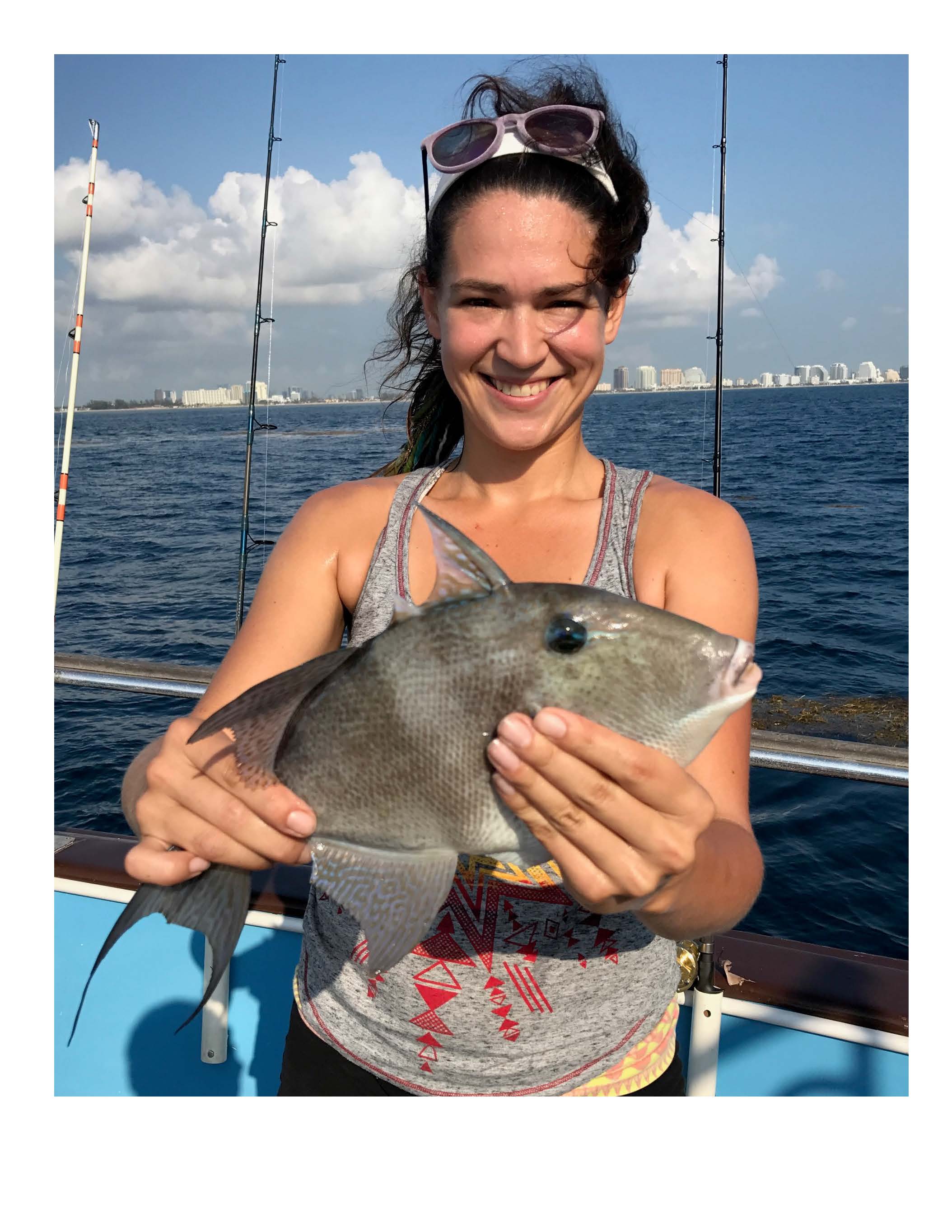CIE Researcher of Distinction, November 2020
Adelle Molina
Each month, the Center for Inclusive Education showcases the outstanding research being conducted by one of our talented scholars in our Research Café series. In addition, we recognize this scholar as a Researcher of Distinction and share the details of his/her journey to becoming an accomplished scholar. This month's Researcher of Distinction is Adelle Molina, PhD candidate in the Department of Marine & Atmospheric Sciences. Adelle presented her work, ‘Climate Change and Fisheries: If you can't stand the heat, get out of the ocean’ on Friday, November 6, 2020.
ADELLE'S PATH INTO RESEARCH
Adelle was born in West Lafayette, Indiana where her parents were pursuing degrees
at Purdue University. She lived in France for two years while her father completed
a post doctorate in Strasbourg, where she learned French. Upon returning to the US,
she lived briefly in Long Island, where she attended a Waldorf School for one year
to relearn English. She subsequently spent most of her youth attending public school
in a suburb in New Jersey. Adelle always loved school and was also active in academic
extracurricular activities, sports, and music and arts. She
still plays the cello and is an avid hula hooper and dj in her spare time. Her first
experience with marine science came from scuba diving camp in middle and high school
and subsequently at John Hopkins Center for Talented Youth summer courses in Oceanography
and Marine Science. Here she was exposed to marine species, research techniques, and
gained extensive scuba diving experience and certifications. She obtained a B.S. in
marine biology from Brown University, where she was exposed to research through experiences
in classes and field trips. She also joined a paleoclimatology lab and conducted an
independent senior capstone research project under Dr. Timothy Herbert.
ADELLE'S Current Research
Describe the work you presented for your Research Café.
I gave a general presentation about the many potential impacts of climate change on
fisheries and provided examples of both species that are declining and species that
may benefit from warming. Her talk focused on the blue crab, Callinectes sapidus,
the subject of most of my dissertation research. My primary purpose has been to study
populations of blue crabs in New York waters because it was hypothesized that the
range of this species would expand, which could mean larger populations in NY bays
and estuaries. As winter temperatures warm in particular, this species is likely to
benefit.
What was the deciding factor for you to come to Stony Brook for your graduate studies?
To be honest, it was the only graduate program I was accepted to out of the 5 I applied for.
Are there any other projects, beyond your Research Café work, that you are currently
working on?
Yes, I work on a variety of other projects. I’m collaborating with a lab mate to analyze the potential biases in DNA metabarcoding gut content analysis research. I am also collaborating with several colleagues to compare the trajectories of climate change in different estuaries along the US Atlantic coast. I’ve also helped to conduct metabolic experiments with a variety of fish and invertebrate species in collaboration with other students and Cornell Cooperative Extension Marine Program staff and am part of several ongoing citizen science monitoring programs.
What are your future goals?
I would like to either work in an academic setting as a lecturer or in a government agency as a fisheries biologist. On a longer timescale, I would like to develop, own, and operate an organic aquaponic farming facility.
What do you enjoy most about research?
I was a “why” child, forever asking a seemingly endless string of questions. As a scientist, I am driven by the pursuit for answers to increasingly challenging questions. I also really enjoy the applied, hands-on part of my research when I was in the lab or in the field doing something physical and getting dirty or wet.
